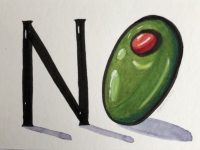On February 4, 2021, the U.S. House of Representatives made public a report concerning the existence of heavy metals in baby food. The heavy metals of concern were cadmium, arsenic, lead and mercury, which pose a tremendous hazard to developing children’s health. After reviewing internal documents and test results from seven of the largest baby food manufacturers in the country, the Subcommittee on Economic and Consumer Policy found each company’s products to contain dangerously high concentrations of heavy metals.
Four of the companies, Nurture, Beech-Nut, Hain and Gerber, responded to the request. They provided internal testing policies, test results for ingredients and finished products, and documentation about how they handled finished products and ingredients that exceeded their internal testing limits.
On the other hand, Walmart, Campbell and Sprout Organic Foods refused to partake in the investigation. The Subcommittee on Economic and Consumer Policy members are very concerned that the lack of cooperation of these manufacturers could obstruct the presence of even higher levels of heavy metals in their products than their competitors.
Practical Measures Baby Food Companies Can Take to Ensure Products Are Safe for Children
Baby food manufacturers may not intentionally add heavy metals to their products, but their lack of testing and a lack of regulation in this sense is a cause for great concern. The main ingredients in baby foods such as rice, sweet potatoes, wheat, and carrots absorb heavy metals from the soil and water and metal-containing pesticides and industrial pollution.
Therefore, the companies that manufacture baby food should tackle the issue of heavy metals at the root of the problem and abide by strict safety measures and protocols to ensure low concentrations of heavy metals, particularly arsenic. Some of the steps that they could take to minimize this issue are the following:
- Sourcing cereals, fruits, and vegetables from fields with lower arsenic concentrations in the earth
- Growing crops with natural soil additives that reduce heavy metal uptake
- Using strains of food that are less prone to absorb heavy metals
- Altering irrigation practices
- Preparing the food with excess water that is afterward poured off
- Blending it with lower arsenic grains in multi-grain products
Subsequently, when the end product is finished, manufacturers should collect a sample from the finite product and test it for cadmium, arsenic, lead and mercury. Fortunately, nowadays, testing baby food for heavy metals is easier than ever and cost-efficient. Every food facility that must comply with FSMA must implement HACCP and establish preventive controls. HACCP, which is recognized internationally, ensures the health and safety of consumers by avoiding hazardous toxins in food. When it comes to baby food companies, they should focus on chemistry testing, as it addresses chemical and physical hazards, including heavy metals.
Alternatively, baby food companies can test their products by using the guidelines of the Environmental Defense Fund. The non-profit advocacy group advises manufacturers to prohibit arsenic, cadmium explicitly, and lead in any packaging or food handling equipment and strictly avoid brass and bronze unless they are confident that no heavy metal was added. Manufacturers of baby food should test the products per se, the ingredients, and the packaging for arsenic, cadmium, and lead. More specifically, companies should:
- Consistently test baby food and their main ingredients that may be contaminated with arsenic, cadmium, or lead by using the method approved by the FDA and examine potential sources of heavy metals where measurable concentrations are found
- Periodically test the packaging that comes in contact with food anywhere along the supply chain for arsenic, cadmium, or lead through a CPSC-accepted, third-party certified lab that evaluates baby food for heavy metals
In December of 2019, the cost of heavy metal testing was between $50 and $100 per sample. Nevertheless, companies that produce baby food should invest in heavy metal testing, no matter how small or large. This is the only way of making sure they put exclusively clean and safe products of high quality on the market.
To make sure baby food companies keep following the guidelines concerning heavy metals and do not fail to test their products for these neurotoxins regularly, the authority of the FDA should be expanded. Accordingly, the agency should be able to request a recall of adulterated or misbranded baby food whose concentration of heavy metals exceeds the safe limit. Moreover, the FDA should establish health-protective standards for each heavy metal and implement a testing program for neurotoxins in foods eaten by infants and toddlers that could be similar to the agenda of the Consumer Product Safety Commission for children’s toys.
The Ethical Measures Baby Food Companies Should Take to Avoid Selling Tainted Products
Baby food companies should exercise their social and moral capacity at all times. Nonetheless, while few people achieve the extent of influence necessary to change society itself, the food industry can drastically change societies. Moreover, it can also act in morally beneficial or detrimental ways, which inevitably affects people, the environment, and, ultimately, the planet itself.
To prevent your baby food company from developing unethical conducts, such as allowing dangerous concentrations of heavy metals in the products that end up on the market, there are a series of measures you and the other people who are in charge of the business can take, the paramount being the following:
- Hiring accredited, trustworthy and competent people is perhaps the most important, as well as the first, step you can take to ensure no foul play will occur, as they will be unlikely to cover up essential information from you and the other higher-ups
- Sourcing your ingredients from ethical suppliers, that are, preferably, local farmers, as they usually employ transparent business practices
- Make sure that your facilities are maintained clean 24/7 by hiring the right people to take care of this not-so-easy job as if you neglect the condition of your facilities. Other contaminants may end up in the food you sell
- Systematically testing your baby food for cadmium, arsenic, lead and mercury to ensure the products you allow to go on the market do not contain dangerous levels of heavy metals
- Partnering with experienced laboratories to have your baby food regularly tested for heavy metals, which may help you save money if it is going to be a win-win situation
- Having clear labels, even if you add ingredients that are not so healthy in your products, which will result in the consumers you target trusting you as a company
- Voluntarily recalling a line of baby food products as soon as you receive the positive test results for one or multiple heavy metals, which will spare you some liability if you willingly take your food off the market
The Changes the Baby Food Safety Act May Bring About if the Bill Becomes Effective
On March 26, 2021, Representative Raja Krishnamoorthi introduced the Baby Food Safety Act, a bill to set maximum limits for each heavy metal in infant and toddler food, which is defined as food manufactured for children younger than 36 months. The initiative was taken because the concentration of neurotoxins in baby food is poorly regulated in our country. There is only a maximum limit for arsenic set by the FDA, which is considered dangerous by multiple other health agencies. It applies solely to infant rice cereals. The other three harmful heavy metals are not regulated at all.
If the Baby Food Act of 2021 becomes effective, companies that manufacture, process, pack or hold baby food need to ensure that their food complies with the limits on heavy metals set by the bill. Furthermore, baby food companies would also have to provide public information, such as test results for neurotoxins in their infant and toddler.














